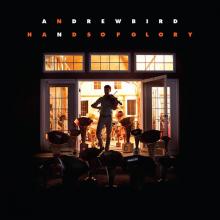country
“I don’t think we talk enough about the delight in sexuality, especially spiritually,” Oladokun told Sojourners. They also take inspiration from the spirit of the Last Supper, comparing queer love to communion and noting “there’s something kind of romantic about Jesus at a candle-lit dinner with a bunch of his bros being like, ‘I am this bread. I am this wine. I am what you can feed off of in this moment.’”
Heartland: A Memoir of Working Hard and Being Broke in the Riches Country on Earth is a gripping account traversing family, poverty, geography, history, and public policy. It’s already been longlisted for a National Book Award and is a Kirkus Prize finalist. Smarsh captures the experience of poverty in the deftest of prose: “I knew how to compare prices on tags before I knew how to read words.”
For much of its long history in the U.S., the Catholic Church was known as the champion of the working class, a community of immigrants whose leaders were steadfast in support of organized labor and economic justice – a faith-based agenda that helped provide a path to success for its largely working-class flock.
In recent decades, as those ethnic European Catholics assimilated and grew wealthier, and as the concerns of the American hierarchy shifted to battles over moral issues, such as abortion and gay marriage, traditional pocketbook issues took a back seat.
INSIDE TOWN HALL, New York’s legendary concert venue, the dusty twang of a harmonica slices through the low din of the crowd filling the 1,500-seat auditorium. Most are likely here for the headliner, singer-songwriter Patty Griffin, who will take the stage after this, a performance by her opening act, Parker Millsap.
The bluesy riffs from Millsap’s harmonica are intense, long and wailing, before fading into the slow, dirty licks of a slide guitar. Then a voice, old and soulful, throbs through the room, crying out the first line of the old gospel standard “You Gotta Move” and shocking many in the audience, residents of a city where very little is shocking. You can see the wave of surprise move like a serpent across the room, with people turning to their companions, eyebrows raised and a whisper on their lips.
It’s the age that gets them—the man standing at center stage, flanked by two bandmates and looking like a rockabilly idol, with his gelled quiff and rolled-up shirt sleeves, isn’t the 60-year-old blues singer he sounds like. No, he is baby-faced, young—barely even 21—and yet he’s pulling this song from some secret, battered place inside him that’s far older than his years, and matching it with a sensual intensity that sizzles in the audience. By the time Millsap allows the last note from his weathered voice to fade, he has commanded the undivided attention of one of the world’s toughest crowds.
And they are raring for more.
If you were overwhelmed by all that election business, you might have forgotten that October just happened, and with it came a new release from one of my personal favorite musicians, Andrew Bird.
Hands of Glory, Andrew Bird’s latest record and companion to March’s Break it Yourself, is the product of a pair of recording sessions prompted by an immense response to Bird’s “old-time” sets on recent tours.
Reinterpreting songs from Break It Yourself and featuring covers of classic country tunes, these “old-time” performances find Bird and his full band playing to a single microphone with an entirely acoustic setup.
Drawing inspiration from these sets, Hands of Glory features two brand new original tracks, a new interpretation of “Orpheo Looks Back” from Break It Yourself and covers of Van Zandt, the Handsome Family, Alpha Consumer and others.
The results are fantastic.




